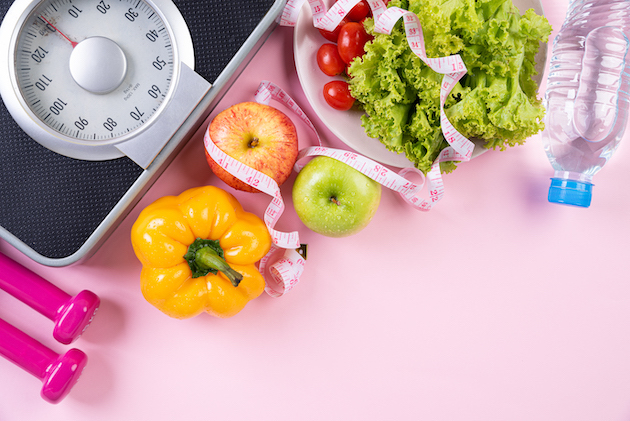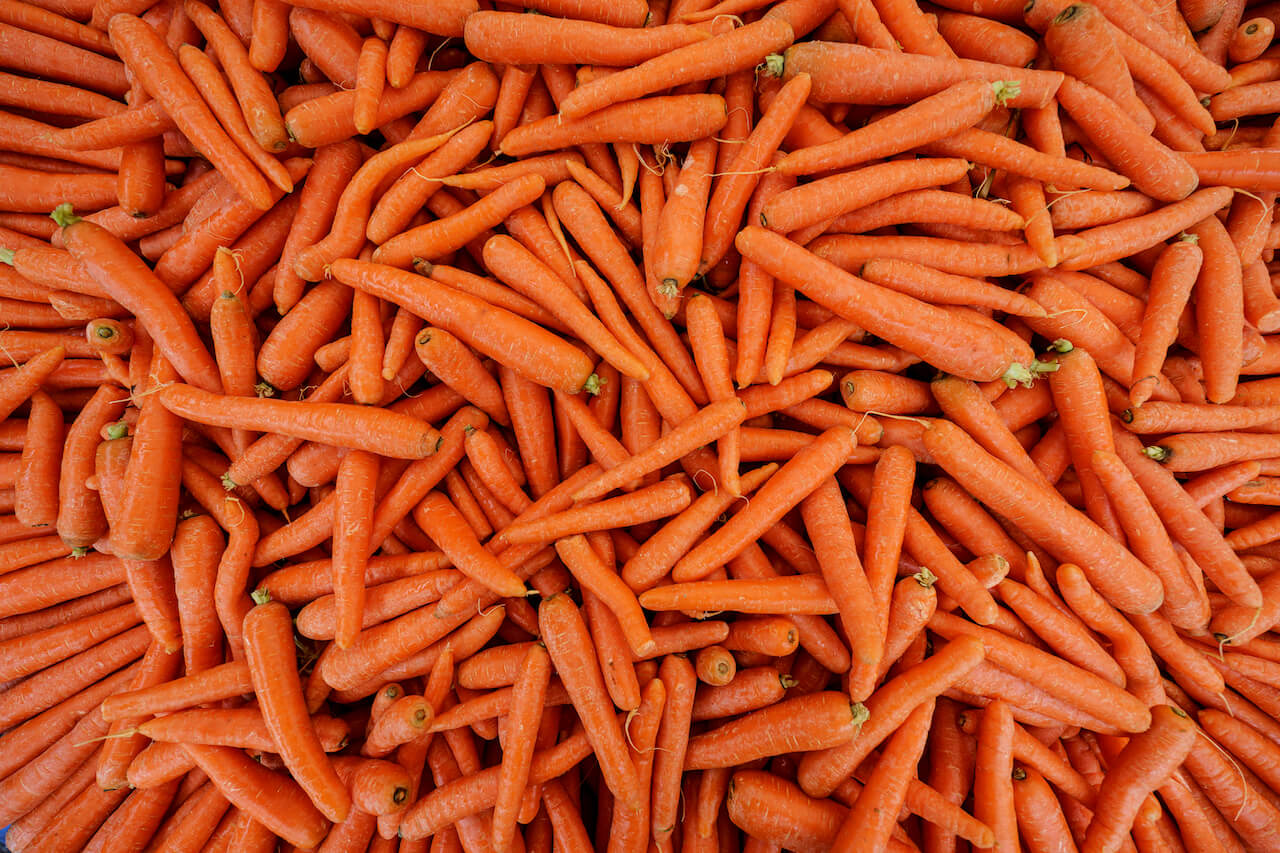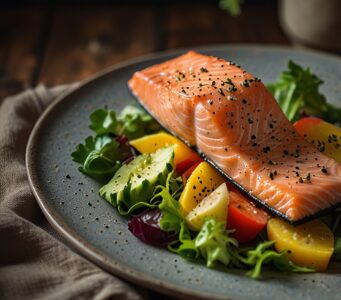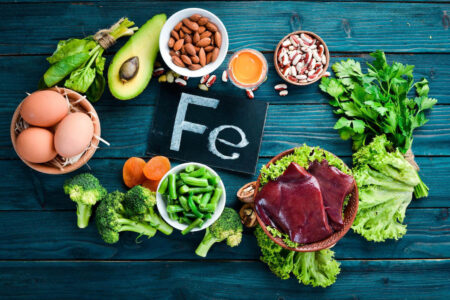Feeling more or less tired sometimes is a normal part of life. Who among us doesn't get tired? However, if fatigue becomes a constant companion, it is necessary to investigate what is causing it. One possible cause may be anemia resulting from a deficiency of vitamin B12, or cobalamin.
Vitamin B12 deficiency and its importance
Vitamin B12 plays an important role in the formation of red blood cells. Low vitamin B12 levels prevents the creation and development of red blood cells. Normal red blood cells are small and round. With a deficiency of cobalamin, or vitamin B12, the red blood cells become large and oval. Hence the name megaloblastic anemia. It is the size and irregular shape that hinder the work of the red blood cell, which causes anemia.
With anemia, you don't have enough red blood cells to transport oxygen to your vital organs, which causes fatigue and weakness.
Vitamin B12 requirements in pregnant women
 Sufficient vitamin B12 is also important for pregnant women. Studies show that the fetal brain and nervous system need sufficient vitamin B12 for normal development. Especially in early pregnancy, cobalamin deficiency can increase the likelihood of birth defects. In addition, vitamin B12 deficiency during pregnancy can also cause premature birth and miscarriage.
Sufficient vitamin B12 is also important for pregnant women. Studies show that the fetal brain and nervous system need sufficient vitamin B12 for normal development. Especially in early pregnancy, cobalamin deficiency can increase the likelihood of birth defects. In addition, vitamin B12 deficiency during pregnancy can also cause premature birth and miscarriage.
At least one in the study, vitamin B12 was Women with vitamin B12 deficiency (below 250 mg/dL) were three times more likely to have a baby with birth defects than women with adequate levels (above 400 mg/dL). For those with vitamin B12 levels below 150 mg/dL, the odds increased fivefold.
Vitamin B12 and bone loss
Many older adults suffer from bone thinning, or osteoporosis. There may be a link between low levels of vitamin B12 and this dreaded disease. A study of 2,500 adults found that with low B12 levels people also had lower than normal bone density.
There are also several other studies that show a link between low vitamin B12 levels and bone loss. Especially it concerns womenwho are at risk in this regard.
Vitamin B-12 reserves in the body
Fortunately, our bodies also have a certain reserve of vitamins. Vitamin B12 supply is about 2–5 mg, and most of it is located in the liver. It takes about 0.1 % of this per day, so if at some point we no longer get this vitamin at all, the reserves will last for several years. B12 clinical symptoms generally develop only after years of inadequate consumption or reduced absorption.
This does not mean that we should be careless about this issue, of course. Rather, it is important information for new vegans, because after giving up animal foods, the level of vitamin B12 in the body can remain within normal limits for several years thanks to reserves. Studies show that vegetarian and especially vegan In this case, vitamin B12 levels are lower than average.
Sources of vitamin B12
 In a typical diet, the main sources of vitamin B12 are meat, liver, and fish. Among non-animal options, reliable sources include yeast, B12-fortified products, and supplements. Seaweed and algae also contain active and inactive B12 compounds, but are generally not considered particularly reliable sources.
In a typical diet, the main sources of vitamin B12 are meat, liver, and fish. Among non-animal options, reliable sources include yeast, B12-fortified products, and supplements. Seaweed and algae also contain active and inactive B12 compounds, but are generally not considered particularly reliable sources.
Vitamin B12 for vegans
The Estonian Vegan Society has published on its website vegan.ee Joint letter on vitamin B12, which has been endorsed by several vegan organizations and health experts. The fact that vitamin B12 is also found to some extent in soil and plants has reportedly led some vegans to believe that B12 is not an important issue for vegans. Suitable non-animal sources often offered include spirulina, nori, tempeh, barley grass, etc. The joint letter warns vegans that: “Such claims have not stood the test of time. More than 60 years of vegan testing have proven that only B12-fortified foods and B12 supplements are reliable sources of B12 that can support optimal health.”
Vitamin B12 in food
Rich sources (more than 0.6 μg/100 g)
- cooked beef liver (150 μg),
- liver pate from beef liver (66 μg),
- flavor yeast, BonSoya (44 μg),
- broiler liver, cooked (43 μg),
- black and red fish roe (20 μg)
- canned cod liver (16 μg),
- salted herring (15 μg),
- herring, sardines, anchovies (12 μg),
- spicy sprat (11 μg),
- cooked fish,
- heat-treated beef, pork and poultry,
- boiled egg,
- most cheeses.
Good sources (0.3–0.6 μg/100 g)
- curd (1 μg),
- cottage cheese (0.46-0.86 μg),
- milk (0.4 μg).
Daily intake and overconsumption of vitamin B12
Vitamin B12 average for adults is 0.7 μg per day. If this is corrected for absorption losses (50%), we get an average requirement of 1.4 μg per day. The minimum daily amount required to prevent anemia is 1 μg. Since B12 is better absorbed in small amounts, it should be noted that the less often it is consumed, the larger the amount should be.
For example, it recommends vegan.ee the following options for vegans:
- eat foods fortified with B12 2–3 times a day, so that the daily intake is at least 3 μg, or
- take a daily supplement containing at least 10 μg of B12, or
- Take a weekly supplement containing at least 2000 μg of vitamin B12.
Fortunately, no negative effects have been observed from excessive consumption of vitamin B12, and no maximum intake amount has been set.
You can get vitamin B12 from the pharmacy as capsules, tablets, and drops.

Allan Randlepp
NutritionistAllan is a nutritionist and trainer whose favorite topics are lifestyle and longevity, including nutrition and physical activity.
Vitamin B1, or thiamine, combats fatigue and nervousness





